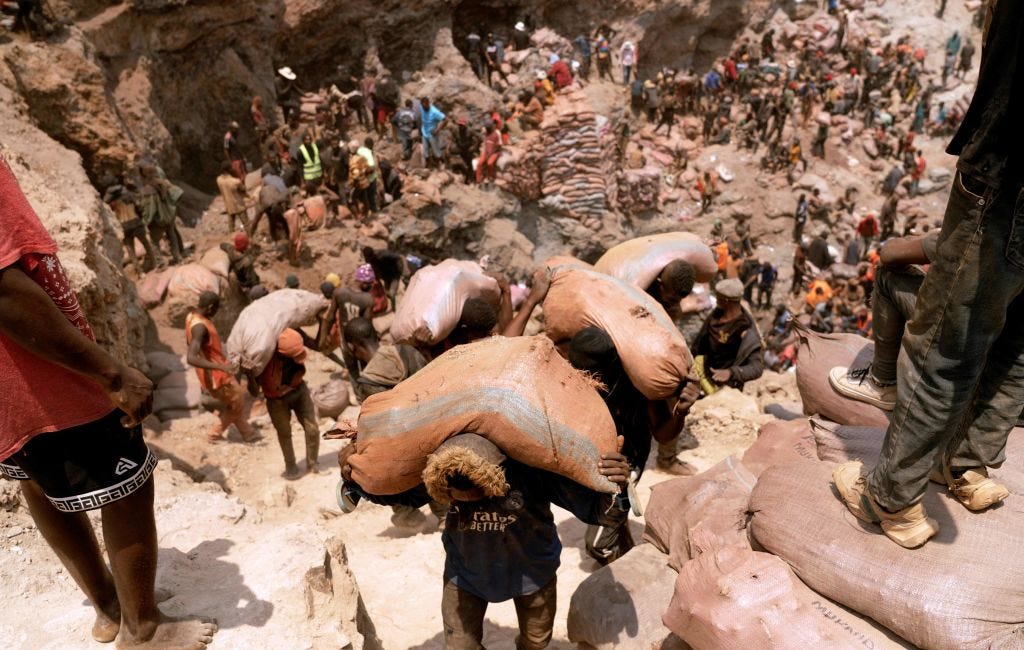
The Free Press

Hello, readers! Bari here. Today, we’re trying something different. We’ve cherry-picked three new books that we think will be up your alley, and we’re giving you a taste of each, with links to keep reading more on our site. (Which we hope you’ll come to more often!)
First up is an excerpt from a new memoir by Yeonmi Park, who grew up in North Korea believing Kim Jong-il was so powerful he could read her mind. She survived a famine that killed nearly three million people, eating dragonflies to survive. At age nine, Park witnessed the public execution of her friend’s mother, who was put to death for the crime of watching a Hollywood movie. Almost no one escapes the Hermit Kingdom. Yeonmi Park did. Last year, as she wrote in The Free Press, Park became a U.S. citizen.
In her national bestseller, “While Time Remains,” Park writes about her experience among America’s most celebrated, wealthy elites—and the moral corruption she found at their conferences and on their Gulfstreams. Check out her story below.
We also bring you a searing interview with Siddharth Kara, the author of Cobalt Red, the book that exposed the suffering bankrolled by Big Tech (and, frankly, anyone who owns an iPhone). And finally, tech guru David Auerbach—the man behind the smiley emoji and the new book, Meganets—tells us just how worried we should be about the future of AI.
I’m curious to hear what you think of this format. Does it work? Are there ways to improve? We hope you write to us: tips@thefp.com—and have a wonderful weekend.
—BW
In October of 2014, I was at the Oslo Freedom Forum when I received an invitation from some guy named Jeff Bezos from a company called Amazon. I had never heard of either, so I replied that I was going to be busy (even though I wasn’t!).
I was also invited to speak at several conferences, including Women in the World hosted by Tina Brown, the founding editor-in-chief of The Daily Beast. At Women in the World, I was scheduled to speak right before Hillary Rodham Clinton—a name I was familiar with from news coverage in South Korea when she was secretary of state. Other speakers there included Jon Stewart of The Daily Show, the actress Meryl Streep, and other political figures like Samantha Power, then America’s ambassador to the United Nations.
This conference was a watershed moment for me and my understanding of the world. Until that point, I thought that the international community had neglected to do anything for the North Korean people because they didn’t know what was going on there. After all, only about two hundred North Korean defectors have made it to America legally in the past seventy-plus years, and no one inside North Korea can communicate with the outside world.
After accepting the invitation to speak at the conference, I resolved to share with the esteemed audience what was actually going on in North Korea, so that Americans and Europeans with real money, power, and influence would feel inspired and empowered to do something. At the very least, I was sure that they would help spread the word about the modern-day holocaust taking place in North Korea, about the fact that it is being aided and abetted by the Chinese Communist Party, and that tens and even hundreds of thousands of mostly female North Korean defectors are being sold, raped, and otherwise harmed in China.
In a word, that isn’t what happened.
Congo has three-quarters of the world’s cobalt, as well as monopolies on coltan and tungsten—which are vital for batteries and circuits, and enable devices to vibrate. Without all three, there wouldn’t be electric vehicles or smartphones. Big customers include, no surprise, Tesla and Apple. The open secret, I learned, is that mining relies on child labor. You don’t need to buy a blood diamond to exploit some of the world’s poorest and most vulnerable children—just an iPhone.
It’s impossible to appreciate the steep price of the green revolution until you’re there. The irony of our hunger for save-the-world renewables means destroying the fragile environments we never see—and condemning generations of kids to this new slavery.
Most of us turn a blind eye to the price of all our swiping, streaming, sharing, and charging. Not Siddharth Kara. The screenwriter, author, and professor has spent years exploring this injustice, and recently published a book about it—Cobalt Red. Kara spoke to The Free Press about child labor, the flip side of sustainability, and forging relationships with unsavory characters in the pursuit of a story that must be told.
Most of us think of AI as something new, but it’s been around for decades in examples such as the Roomba vacuum and Clippy, Microsoft’s much-maligned office assistant. David Auerbach writes about AI and the implications of Big Tech in his new book, Meganets: How Digital Forces Beyond Our Control Commandeer Our Daily Lives and Inner Realities.
His book couldn’t have come at a better time. Last month an open letter arrived like a warning shot, signed by several of tech’s best-known names, including Elon Musk, calling for “all AI labs to immediately pause for at least 6 months the training of AI systems more powerful than GPT-4.”
What does Auerbach think of their concerns? “One thing the letter tells us,” he says, “is that even the people who work on this technology are starting to get pretty uncomfortable with what it’s capable of doing. And what they’re proposing is basically, ‘Let’s just kick the can and buy ourselves some time to figure it out.’ ”
Whatever the problems with AI, Auerbach doesn’t think we can fully stop it. Here’s why.
If you’re hungry for more, check out these other recent Free Press stories, including a scoop on the school that won’t quit COVID, a fascinating read on the brave new world of surrogacy, and TGIF—our essential digest on the week’s news.











“Read more” not working for me and I’m also not getting daily emails from The FP.
ne too; “read more ...” button needs fixing! does it work for anyone?